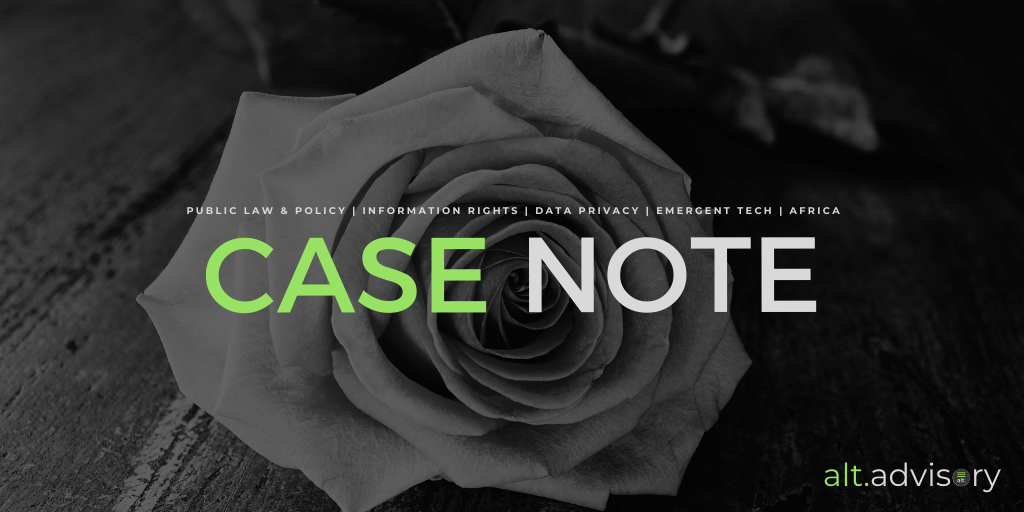US Supreme Court: The Onion defends the right to mock the police
Anthony Novak v. City of Parma, Ohio Kevin Riley and Thomas Connor
Court: United States Supreme Court
Date of filing: 26 September 2022
*****
Background
The case concerns the 2016 arrest of the Appellant, Anthony Novak, after he created a parody Facebook page which was modelled after the official Facebook page of the local police department in the City of Parma, Ohio. The Facebook page advertised various outrageous (fictional) events and initiatives supposedly launched by the Police Department.
The Facebook page was up for 12 hours before it came to the Parma Police Department’s attention; the Department subsequently wrote a letter to Facebook requesting that the page be removed and published a notice to the public warning of Mr Novak’s parody page. Mr Novak copied the official warning post by the Police Department to his fake Facebook page.
After investigations, the police identified Mr Novak as the page’s creator, and arrested him. He spent several days in jail, and was charged with a felony for using a computer to disrupt police operations. A jury subsequently acquitted him of those charges, but Mr Novak filed a civil claim against the Parma Police Department, citing a violation of his constitutional right to free speech. A District Court and the United States Court of Appeals both dismissed the civil claim, finding there to be no recognised right to be free from a retaliatory arrest that is supported by probable cause. Mr Novak has now filed an appeal to the Supreme Court to decide on the matter.
Amicus submission
The Onion, a prominent satirical news organisation, has submitted an amicus brief in the case to assist the court in support of Mr Novak. In keeping with its identity, The Onion’s tongue-in-cheek submission blends its legal arguments with humour and satire, boasting of its “4.3 trillion” daily readers and its status as “the world’s leading news publication.” It states that The Onion’s intervention in the matter aims to protect the publication of parody and satire as an ancient and valuable art form and to prevent the imprisonment of humourists.
Should parodists provide warning to readers that the parody is untrue?
The US Court of Appeals decision implies that parodists such as Mr Novak should warn their audience in advance that a parody is untrue. The Onion’s amicus brief submits that this contradicts the nature of a parody, which requires a mimicry of the original work to function effectively. A parody, it submits, is intended to play on the readers’ expectations of truth by copying a particular form which is later contradicted by the content of the parody. In the case of Mr Novak, posts on the parody Facebook page were intended to fool readers into believing it was the official page of the Parma Police Department, but upon further reading they would find that it was merely a mockery. The Onion argues that parody is a powerful tool in holding authority accountable by using humour to point out absurdity through exaggeration.
It further submits that parody is fundamentally based on the notion that a reasonable reader would easily identify content as a parody and would not require a disclaimer indicating this. As a result, courts should apply the reasonable person test in assessing the requirement for a disclaimer, because a reasonable person would be able to differentiate satire from truth. Relying on precedent, including the decision in NYSE v Gahary which noted that parody published without a disclaimer is protected free speech, The Onion argues that being obliged to provide a disclaimer makes the parody structurally ineffective and humourless, and thereby undercuts its ability to critique and mock holders of power.
Legal questions
- Is free speech protected where no disclaimer is provided to readers indicating that the text is a parody?
- Are there limits on the extent to which public figures or institutions may be subject to mockery?
- Is parody – even that which may be offensive or in poor taste – deserving of protection as a form of social and political criticism?
Legal proceedings
The Appellant filed an appeal with the Supreme Court on 26 September 2022, prompting The Onion’s humorous and unprecedented submission. The City of Parma Police Department has until 28 October 2022 to provide a response, and the case would likely be heard in 2023 if the Court opts to consider it.
- The Onion’s amicus brief can be accessed here.
- The Appellant’s submission can be accessed here.
- The United States Court of Appeals decisions’ can be accessed here (2019) and here (2022).
Please note: The information contained in this note is for general guidance on matters of interest, and does not constitute legal advice. For any enquiries, please contact us at [email protected].


